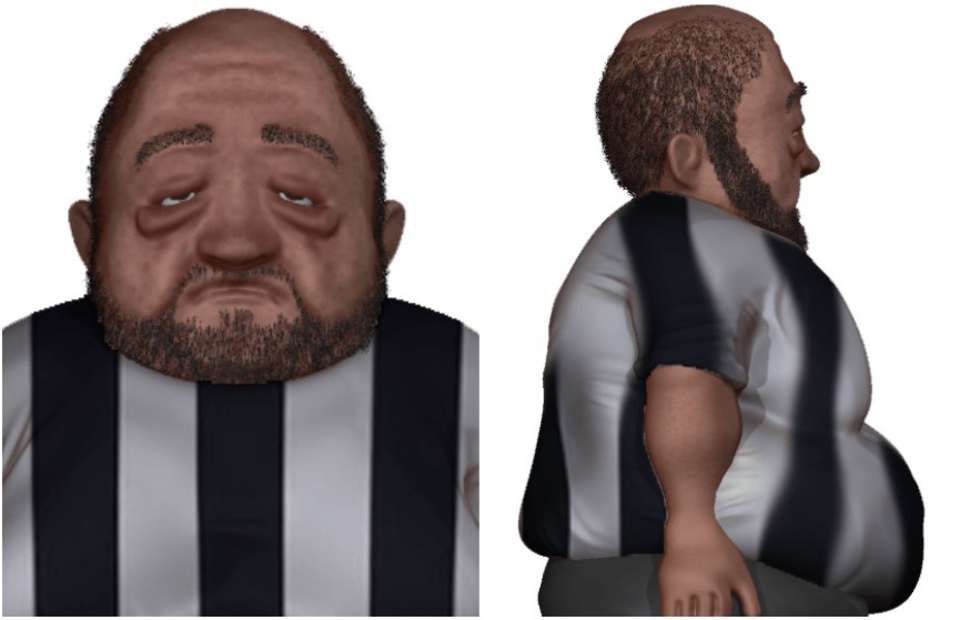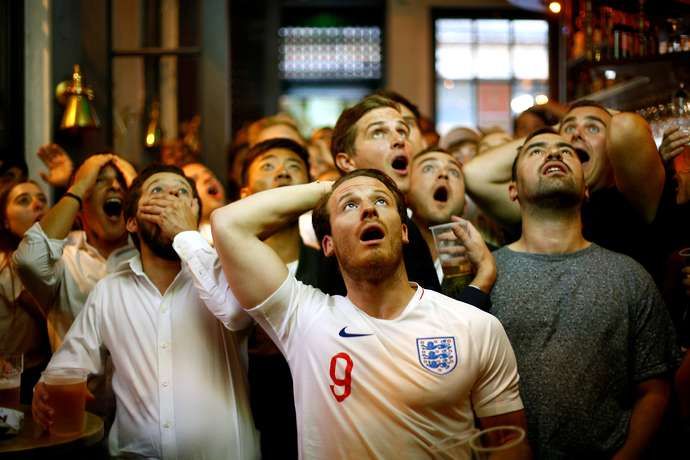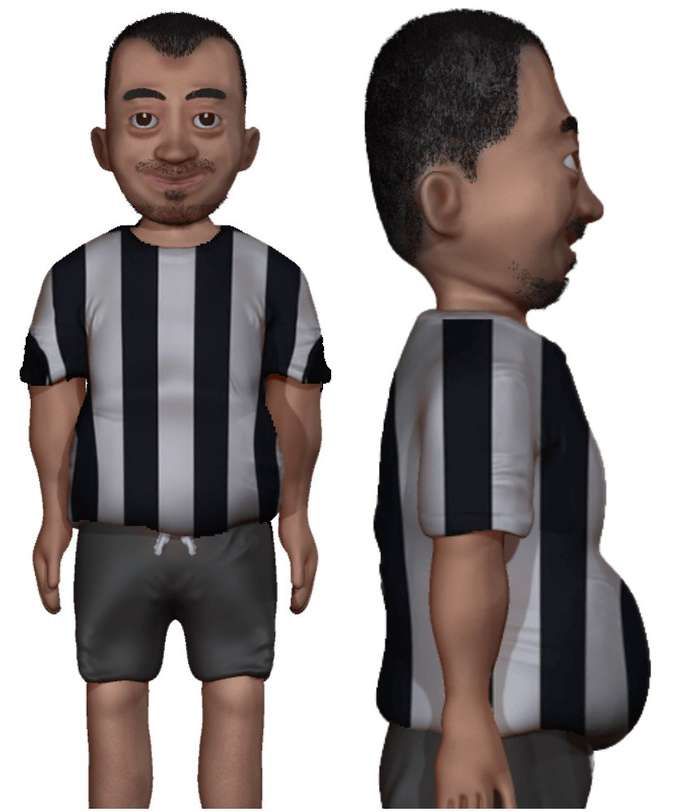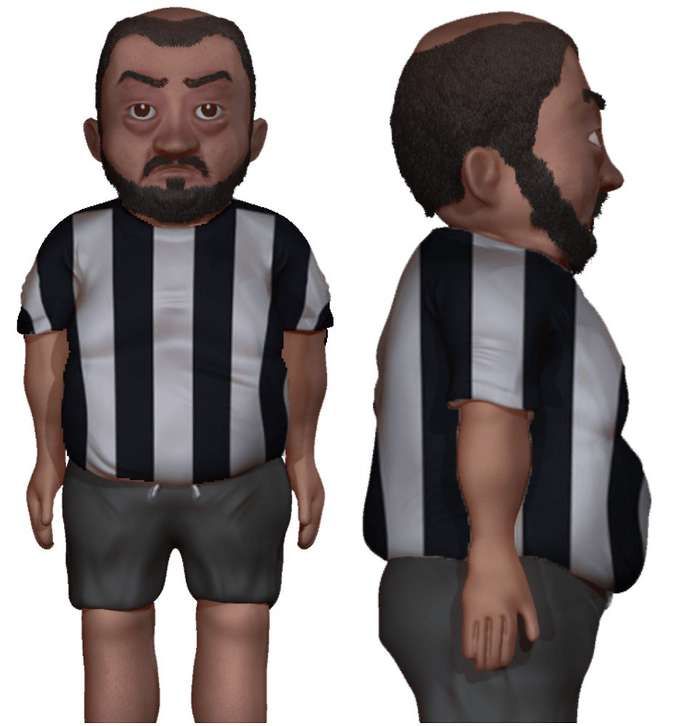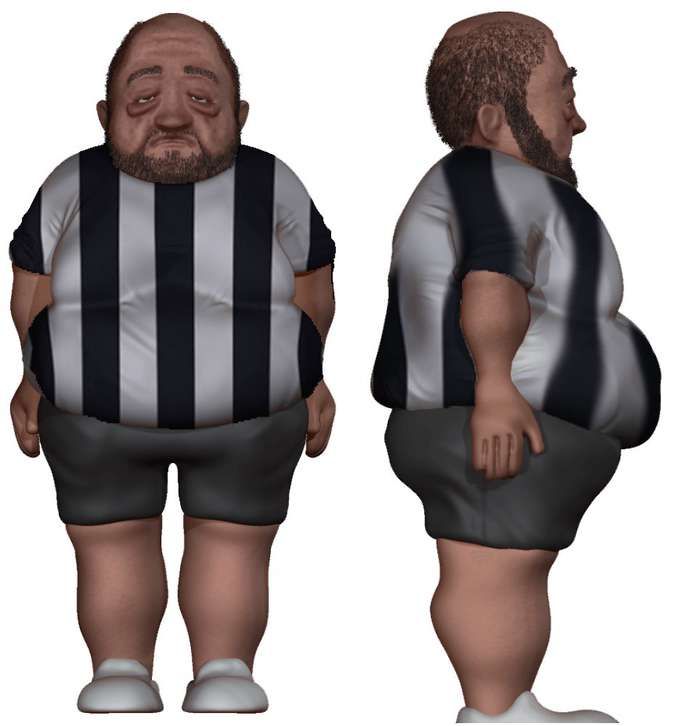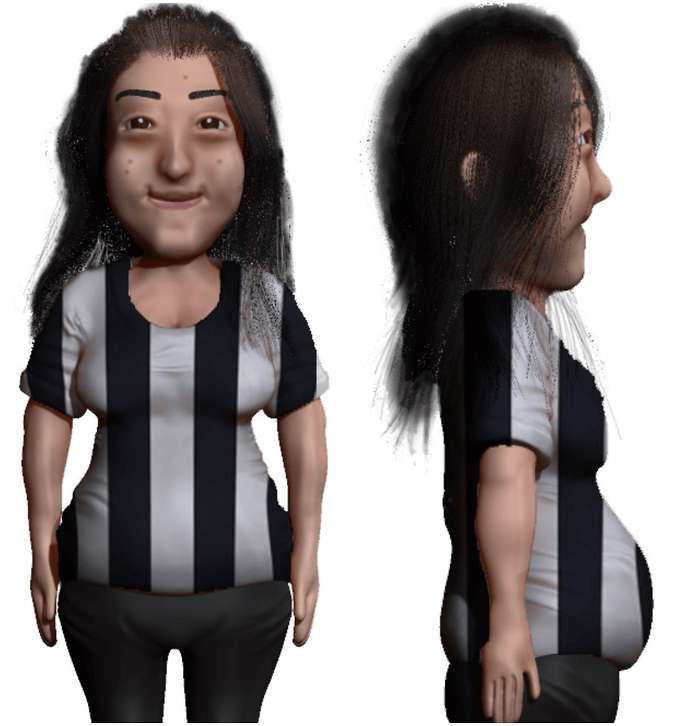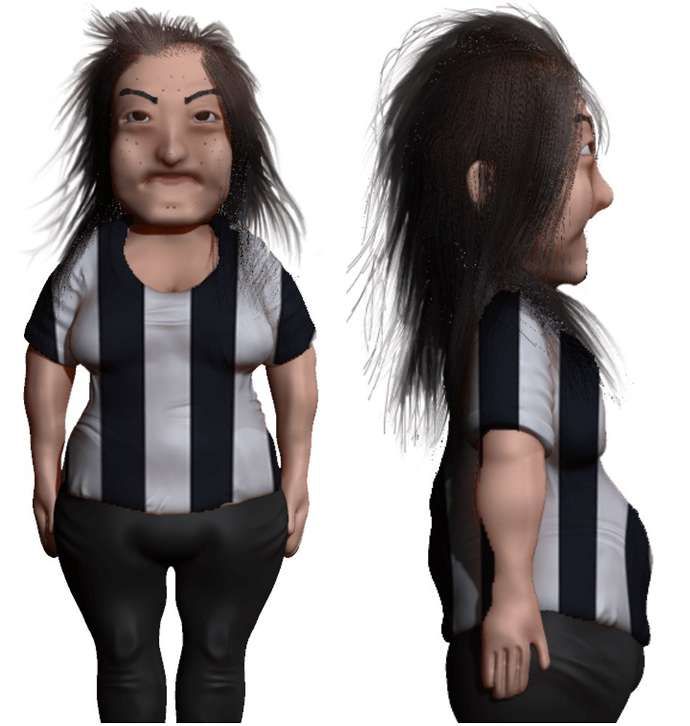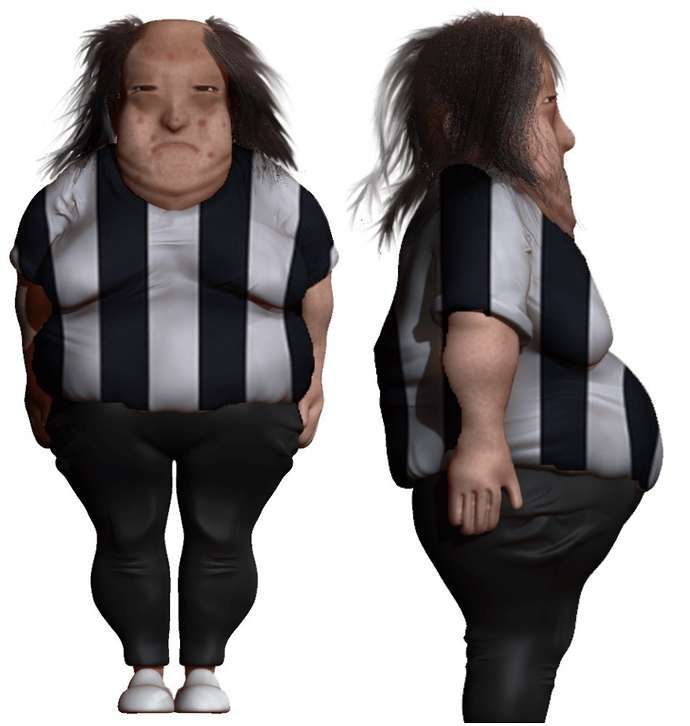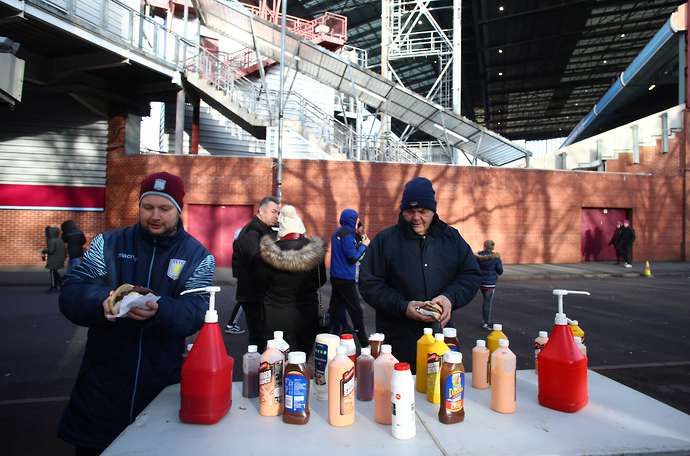Supporting a football team can be a stressful experience.
Those who are deeply engrained in their team know all about it. The rapidly increasing heart rate as you watch your team defend a 1-0 lead; the pulsating anger as your new £20 million striker misses his fifth chance of the match.
What effect does this have on the body?
A study by Oxford University, per BBC, found that loyal supporters experience such high levels of physical stress while watching their team that they put themselves at risk of suffering a heart attack.
How fans might look in 30 years
But that’s not all.
Researchers from OnlineCasinos.co.uk have carried out analysis into how football fans could look in 30 years from now if they continue unhealthy matchday habits and are forced to continue watching games from home.
Games have been played behind closed doors as a result of the coronavirus lockdown, and this could cause problems to fans’ physical appearance in the future.
OnlineCasinos created male and female models named Joe and Lisa, calling them “the future sports fans”.
New 3D images reveal the toll they suffer as a result of supporting a club over the next 10, 20 and 30 years. Believe us when we say they're horrifying.
Male fan in 2030
Male fan in 2040
Male fan in 2050
Female fan in 2030
Female fan in 2040
Female fan in 2050
The most noticeable physical change that fans can expect to experience is obesity, specifically abdominal obesity. A study showed that the average football fan consumes 10,000 calories every matchday, which, if not being burned off, will lead to calorie overload and therefore weight gain.
Things are even worse if you support a team that perennially loses. Research published in the journal of Physiological Science found that fans are prone to comfort eating to get over a defeat - saturated fan intake was 16 per cent up among fans whose team lost the previous weekend, compared to a nine per cent decrease among those whose teams were victorious.
Other long-term side effects of supporting a team include hair loss due to stress, swollen ankles due to sitting and standing for long periods of time, and postural issues from hunching over mobile phones and eating meals on laps.
Click HERE to see OnlineCasinos' interactive tool on how fans might look in the future.
OnlineCasinos gave football fans five tips on how to avoid looking like Joe and Lisa.
1. Consume a healthy diet
Porridge is suitable for breakfast because it provides a slow release of energy, reducing hunger levels and therefore calories consumed.
2. Exercise and move about
Exercise releases endorphins, which can help you feel better after a defeat.
3. Avoid social media after a loss
You’re feeling bad after a defeat. The last thing you need to see is rival fans taunting and mocking your team on Twitter.
4. Check your posture
If you’re sitting in a hunched position or are putting increased pressure on your joins by standing, change up your posture.
5. Go to bed at a reasonable time, relative to when you wake up
A late bed time is never a good idea if you have to be awake early. Plan when you go to sleep based on when you have to leave for the game.



















